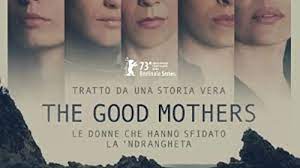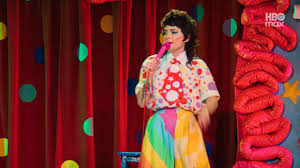The Good Mothers Review 2023 Tv Show Series Cast Crew Online
Presented at the Berlin Film Festival 2023 – as part of the Berlinale Series section – the first two episodes of The Good Mothers convince, both for the visual care and for the rhythm, as for the evident “international” setting of the product. A care placed at the service of the narration of the lives of a handful of women, who challenged the criminal power of the ‘Ndrangheta. The series will be proposed in its entirety by Disney+ starting next April 5th.
The Italian crime genre, both on the big screen and on the small screen, seems to have said a lot of what it had to say by now, especially after the international successes of works such as Gomorrah – The series, the previous Romanzo criminale, and their many more or less clones less declared. The highlighting, by the film and television industry, of the harsh reality of organized crime has also provoked some inevitable controversy, given the “epic” stature that many criminal epics (but this is certainly not new, nor a specificity Italian) ended up hiring for spectators. An epic – somehow inherent to the genre itself, and already abundantly experimented by American masters – which however seems to be absent from thisThe Good Mothers , the new Disney+ series of which the first two episodes were presented at the 73rd edition of the Berlin International Film Festival. The series, a co-production between Italy and the United Kingdom (the companies involved are House Productions and Wildside, from the Fremantle group), is in fact inspired by the book of the same name by journalist Alex Perry, a chronicle of the action of three women of ‘Ndrangheta who decided to collaborate with a magistrate, thus challenging the patriarchal power of the organization. The point of view, therefore, is that of what is traditionally considered a weak link in the power structure of criminal clans, which cancels any hypothetical fascination by superimposing the oppression of status, in the criminal pyramid, on that – transversal in society – derived from gender .
Set in 2010, the plot of The Good Mothers moves from the disappearance of Lea Garofalo , a collaborator of justice whose protection has been revoked, who, together with her daughter Denise , had decided to get closer to her husband, the boss Carlo Cosco. The woman, shortly after reuniting with her husband – now stationed in Milan, but constantly in contact with the ‘Ndrangheta relatives – disappears into thin air, while Denise herself becomes convinced that she is in danger. Meanwhile, in Calabria, the magistrate Anna Colace , a fierce public prosecutor committed against the criminal clans, is closely following the story of Denise, and in parallel those of Giuseppina Pesce and Concetta Cacciola: both are wives of criminal leaders, and both seem perpetually condemned to a role – family and social – completely subservient to male power. Thus the magistrate develops a new strategy: to try to crush the power of the gangs by leveraging the female element, trying to convince him to collaborate and thus undermine the organization’s power structure. An intention that will put women in front of the choice of betraying their family ties, in the hope of guaranteeing a different future for themselves and their children.
While watching the first two episodes of The Good Mothers , the mind cannot help but go to the recent Bang Bang Baby , a series proposed by Prime Video with a similar theme, also inspired (freely) by real events. A juxtaposition that is also inevitable due to the analogy of the figure of Denise – played here by the excellent Gaia Girace, already seen in My Brilliant Friend – with that of the young protagonist of the Amazon series, Alice Barone. The series directed by Julian Jarrold (already behind the camera for The Crown) and by Elisa Amoruso, however, seems to be moving in a diametrically opposite direction compared to the one proposed a year ago by Prime Video: where, in fact, the series created by Andrea Di Stefano transfigured the criminal environment through a pop perspective (with grotesque points and dreamlike) of a teenager from the 80s, here we recover a classic, we could say naturalistic, approach to narration. In addition, Denise’s journey – just like, we guess, those of Giuseppina and Concetta only hinted at at the moment – also moves in the opposite direction to that of Alice: where, in the second case, there was in fact the (re) discovery of one’s criminal roots, which one had tried in vain to sever at an early age, here is if anything – on the part of the protagonist – the awareness of the meaning of these roots, and the weight of blood they carry with them. A perspective that if anything brings the series closer to the recent oneA Chiara , a successful example of a crime movie by Jonas Carpignano which was also a coming of age film, with another girl at the center who rejected the criminal logic that informed her family’s actions.
It is always a somewhat unpleasant exercise, from a critical point of view, to evaluate only a part of a larger entity, which could theoretically disprove the first impression altogether; however, in this case we feel (with reasonable certainty) that at least the packaging of The Good Mothersit is respectable. The international character of the product can be seen in the care of the photography; an evident care especially in the nocturnal sequences, which enhance the dark tones (with a chroma sometimes tending towards shades of blue and green) and which well convey the mounting tension of some moments – such as the one that alternates the images of Denise, alone at home, to those of a party where all the bosses of his father’s business are present. The first two episodes of the series mostly focus on the personal story of Anna Colace (who is given life by an effective Barbara Chichiarelli, already seen in Favolacce) and above all on the young Denise, whose path of awareness, and of removal from the oppressive family environment, is here, however, only at the beginning. At the same time – with a use of editing that never breaks the rhythm of the story – the story of Giuseppina Pesce played by Valentina Bellè is outlined – a drug courier who “talks too much”, a singular mix of brutal determination and unexpressed desire for rebellion – and that, only hinted at, of the other wife of a boss, Concetta Cacciola with the face of Simona Distefano. Personal events and narrative arcs still in progress, however introduced in an intelligent way by a screenplay that, for now, seems to show a good balance – even in the certainly not innovative character of the subject. For a more complete evaluation, there is obviously (about) a month and a half to wait, until next April 5; but the premises, at the moment, seem more than good.




